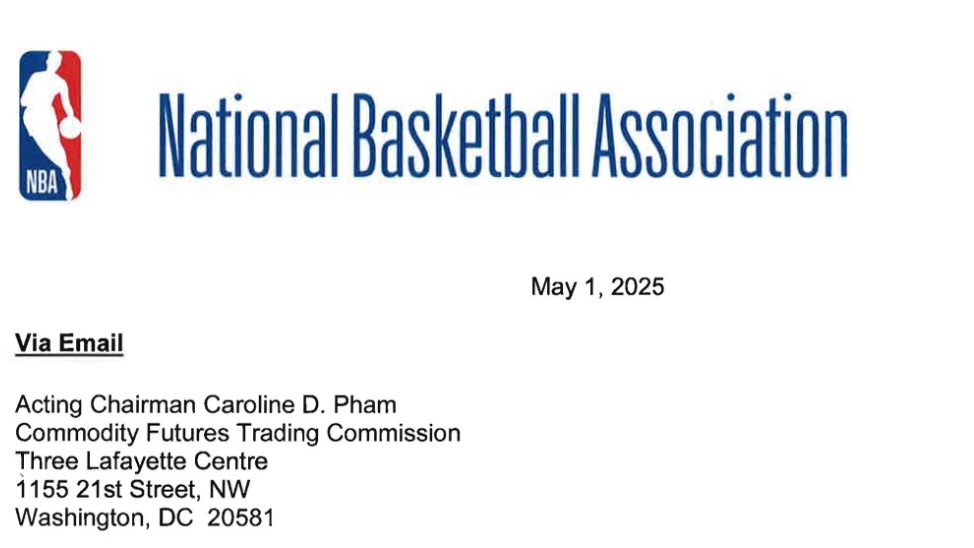NBA demands the development of a regulatory framework for sports prediction markets

NBA has become the second largest sports league in the US after MLB, sending a letter to the Commodity Futures Trading Commission (CFTC) criticizing sports prediction markets such as Kalshi, Robinhood, and Crypto.com.
In the letter, the league calls for the creation of a regulatory framework for prediction platforms that include sports betting.
What are sports prediction markets?
Sports prediction markets allow users to place bets and make predictions on various events related to sports games and competitions.
These platforms offer users the opportunity to guess the outcomes of matches, and based on these predictions, bets are formed.
However, such platforms raise concerns among official sports leagues because they could affect the reputation and integrity of sports as well as the regulation of betting.
NBA’s stance on sports prediction markets
The NBA has reached out to the Commodity Futures Trading Commission (CFTC) to intervene in the activities of platforms that are actively engaged with sports prediction markets.
In its letter, the organization expresses concern that companies like Kalshi, Robinhood, and Crypto.com are allowing users to place bets on the outcomes of sports events, which could lead to manipulation and unethical practices.
Key concerns of the NBA
- Match result manipulation: Platforms that allow betting on sports events could become targets for manipulation by players, which threatens the fairness of the competitions.
- Lack of regulation: Currently, there are doubts about the adequate regulation of such platforms, which could lead to fraud and unfair practices.
- Impact on the entertainment value of sports: Sports predictions and bets may affect how viewers perceive games and sporting events, changing their interest in them.
CFTC’s response to NBA’s request
The Commodity Futures Trading Commission (CFTC) plays an important role in regulating financial markets and prediction markets.
In response to the NBA’s letter, the commission has started to consider the need for a new regulatory framework for sports prediction markets. However, the question of how exactly the regulation will be implemented remains open.
The idea of introducing regulation, according to experts, has many facets. Some believe that excessive intervention could hinder innovation and the growth of new technologies, while others argue that it is necessary to protect the interests of sports leagues and viewers.
Existing sports prediction platforms
Currently, there are several large platforms that offer the opportunity to predict the outcomes of sports events.
Among them are Kalshi, Robinhood, and Crypto.com. Each of these platforms has its own features and approaches to organizing bets.
Kalshi
Kalshi is a platform specializing in commodity futures, including sports events. It allows users to make predictions not only on sports but also in other areas, such as economics and politics.
Robinhood
Robinhood, known for its investments and trading, also includes the possibility of betting on sports events through cryptocurrency tools. These tools attract a young audience and are actively used for sports predictions.
Crypto.com
Crypto.com is actively developing the sports prediction market, offering users unique opportunities to bet on various sports events, including soccer and basketball.
The future of sports predictions and betting
As technology develops, sports prediction markets are becoming increasingly popular. However, an important aspect remains their regulation.
It is essential that they evolve within the framework of the law, ensuring safety and fairness for both users and the sports organizations themselves.
What is needed for effective regulation?
For prediction platforms to operate within the law, it is necessary to:
- Develop clear rules and standards regulating sports betting.
- Ensure transparency of operations on the platforms.
- Create mechanisms to prevent manipulation and fraud.
Only by meeting these conditions can sports predictions become safe and effective for all market participants.
